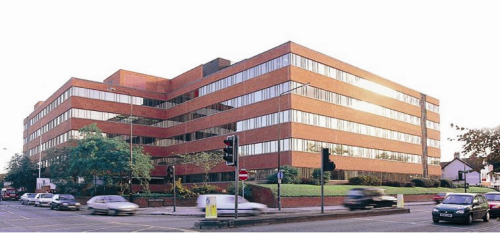
An office block in Manchester, UK, is set to save over £29,000 on its annual electricity bill following the installation of ABB variable speed drives in its HVAC system.or several years Jackson House had air flow problems throughout the tenanted areas. One such problem was that the main ventilation plant’s fans were running constantly at full speed. The plant consists of four fans, ranging from 45 to 120 kW; two for supply and two for extraction. The block also has a variable temperature heating system comprising four pumps; two duty pumps and two standby pumps, also running at full speed.
Another problem was the high noise level of the fans. Local residents living near the office block had instigated a noise abatement order, which restricted the operation of the plant to certain times. This restricted the letting potential of the property.
Part of the refurbishment of the office block involved the installation of a BACnet based Building Energy Management System (BEMS) from the Canadian manufacturer, Delta Controls Inc. Staffordshire-based Building Environment Control (BEC), which installed the BEMS, were asked to install variable speed drives that could be integrated with the new control system to improve the management of the building’s ventilation.
Nick Payne of BEC says: “BEC now only install ABB drives. A big advantage is that they include the flexibility of inbuilt BACnet compatibility and we have been installing BACnet systems for 10 years now.” BEC’s analysis of the fans and heating pumps’ duty cycle was based on 2,600 hours per annum, assuming an electricity cost of £0.07/kWh.
For the air handling fans, installing ABB HVAC drives on each of the four fans resulted in a 49% energy saving. This equates to annual cost savings of between £4,000 and £10,700 per fan, depending on rating, giving a total saving for the air handling unit of £27,914 per annum. The payback period is about 11 months.
The pressure control of the fans is improved and allows accurate air balance to be achieved on the floors, reducing noise, drafts and improving temperature control. Similarly, the heating system pumps save £1,572 per annum following installation of ABB HVAC drives.
Another benefit is the improvement in the pressure control of the pumps, allowing accurate water balance to be achieved on the floors. In a way similar to the air handling fans, this will reduce noise and improve temperature control. Additional energy savings are achieved as heating will only be pumped around the building when it is required to match the building demand.
‘Soft start’ is another standard feature of the ABB drives which provides a controlled slower start-up to minimise electricity peak demand. Peak demand is normally penalised by electricity providers and can affect the tariff set by the utility provider. “The addition of ABB drives enables air volumes to be controlled accurately via the BACnet based BEMS,” says Payne. Communicating with the BEMS allows the drives to provide full technical data on the running conditions of each motor to ensure energy efficient operation is maintained.
“The ABB drives and the Delta BEMS were very easy to integrate with each other and the building remained occupied during the installation period.” Payne concludes: “The result of this installation is that the building manager is now in full control of the systems and the landlord is benefiting from the reduced running costs.”






